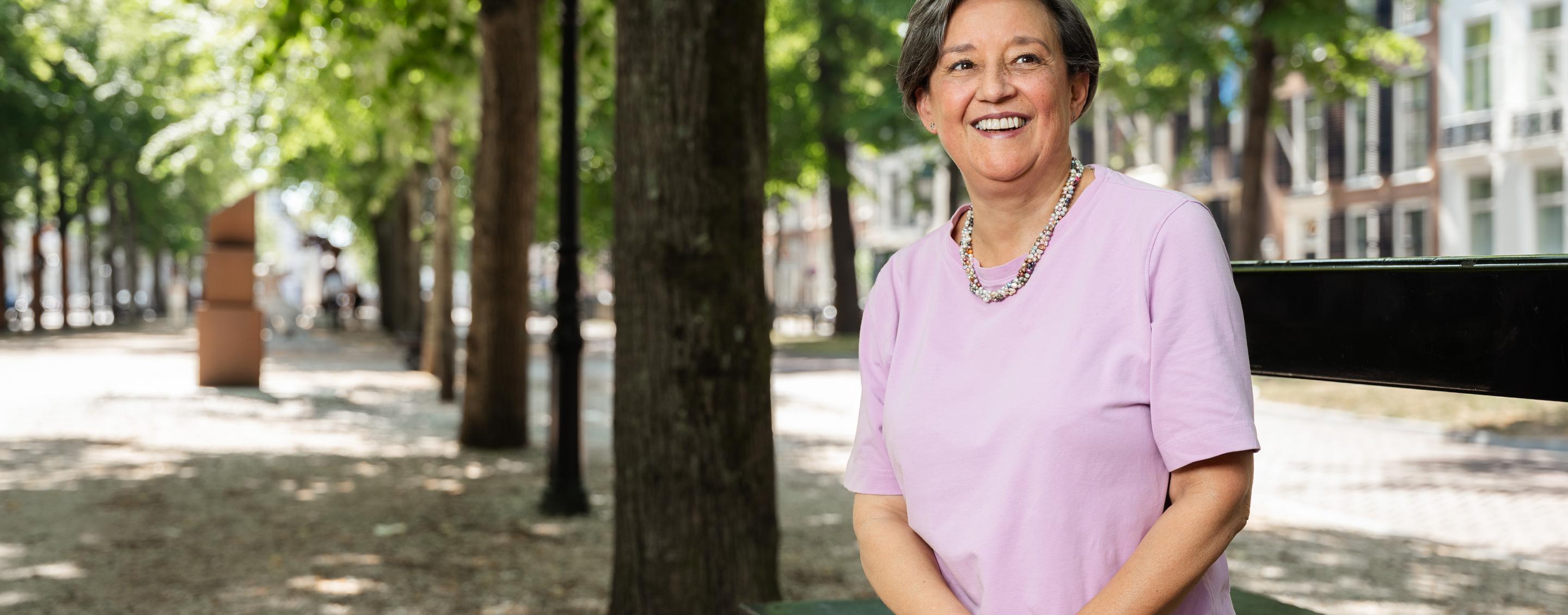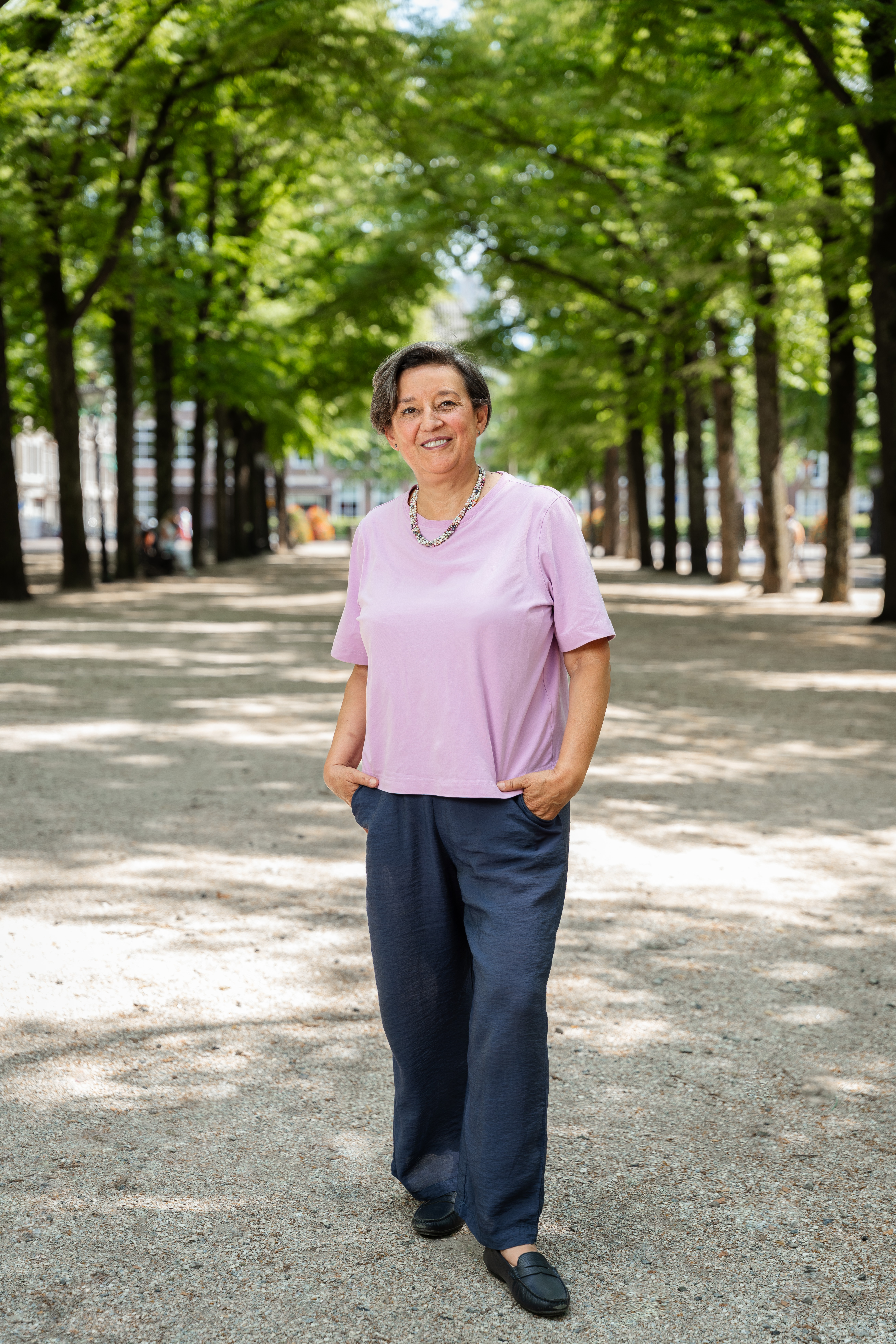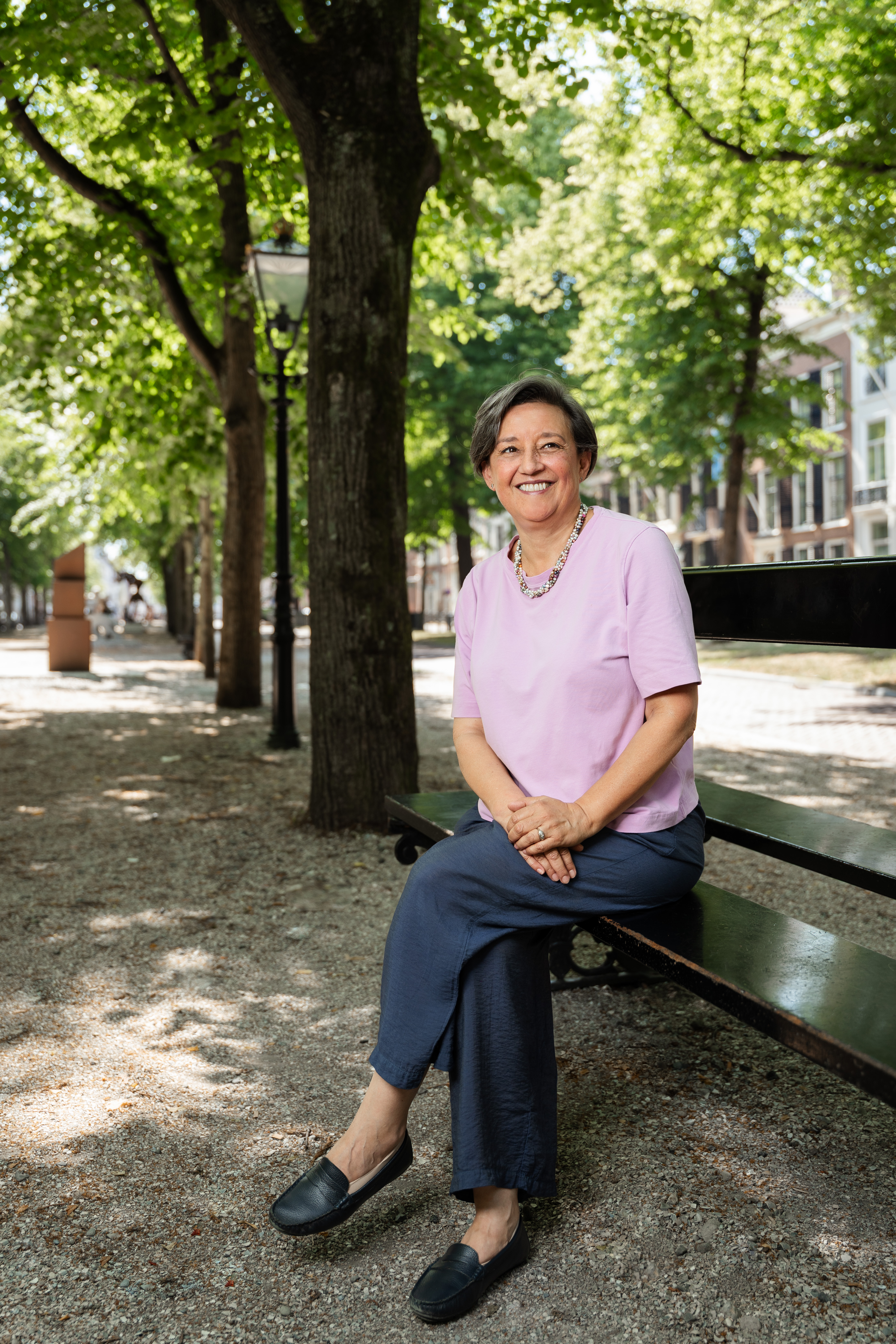
Deborah Valentine: You Can Still Be You and Belong Here
A Slower Rhythm, A Lasting Welcome
When Deborah Valentine moved to The Hague in the early 1990s, it felt like stepping into another rhythm of life. The city was small, charming, and accessible, but it also brought surprises. Shops closed early, international restaurants were hard to find, and Sundays were unusually quiet. “It was lovely,” she says, “but it took some getting used to.” There was beauty in the architecture and a quiet dignity in the way the city carried its history, but for someone arriving from a more fast-paced environment, it required adjustment. Over time, that same rhythm became one of the things she appreciated most. The Hague did not try to impress you all at once. It invited you in slowly.
Finding Her Way Without a Map
Originally from Canada, with Jamaican and German roots, Deborah moved to the Netherlands in the early 1990s as a diplomat’s spouse. Her first years were a lesson in contrasts. She arrived at a time before smartphones, Google Maps, relocation coaches, or international welcome centres. Getting her bearings meant paper maps, landlines, and a lot of trial and error. She remembers the shock of finding restaurants closed before dinner, quiet streets after six in the evening, and very few signs or services in English. “It was a maze,” she recalls with humour and ease, unbothered by how chaotic it must have felt at the time. “You felt like you were always one question away from knowing what to do, but you did not know who to ask.” Slowly, though, that challenge became a foundation for belonging. She learned the language, adapted to Dutch cycling culture, and built her own support networks. Today, as the Executive Director of ACCESS, she channels those experiences into something purposeful, helping others arrive, settle, and connect without feeling as lost as she once did.
“Where you feel at home is where your roots are. And roots can grow in a lot of ways; through your kids, through your work, through the people who get you.”
A City That’s Grown with Its International Community
Deborah has seen The Hague evolve dramatically in her years here. When she first arrived, the international community was small and mostly tied to embassies or international organisations. Cultural offerings for internationals whereby Dutch is not required were limited, and many internationals felt isolated without established support networks. Over the past three decades, she has watched The Hague grow into a richer and more dynamic international hub, welcoming professionals, families, students, and entrepreneurs from all over the world. “The Hague’s diversity now extends far beyond the traditional diplomatic or institutional circles,” Deborah says. “And that shift means we need to think differently about how people connect, how they get settled, and how they are welcomed.”
The Magic of Movement and ACCESS
What she loves most about The Hague is how much there is to experience within such a compact, walkable space. In a single afternoon, she says, you can step out of a historic museum, wander through the bustling Haagse Markt, and end your day watching the sun set over the North Sea. “You can be downtown at a concert and half an hour later have your feet in the sand,” she says. “It is one of the most accessible cities I have ever known. And that is part of its magic.” For Deborah, this accessibility is more than just convenience. It is part of what makes the city feel liveable, even for newcomers who are still figuring things out. The ability to move easily between culture, community, and calm is what she believes sets The Hague apart from other Dutch cities.
“Just being able to walk into a space and ask a question, and have someone nod and say ‘you are not the only one,’ that is powerful.”
Leading with Empathy at ACCESS
Helping others find their footing has become central to Deborah’s work at ACCESS, a non-profit organisation founded in The Hague in 1986 to support internationals living in the Netherlands. She sees her role as both practical and personal, ensuring that people feel confident navigating everything from bureaucratic paperwork to cultural differences. “We work with newcomers every day, and what I have learned is that it is not just about providing answers. It is about making people feel seen,” she explains. That personal touch is part of what has made ACCESS a trusted point of connection for thousands of internationals each year, whether they are arriving for work, study, research, or diplomacy.
A Lifeline Inside The Hague International Centre
But ACCESS is more than just a helpful organisation in the city. Since the day The Hague International Centre opened its doors 15 years ago, ACCESS has been an integral part of its daily operations. A dedicated team of around 25 ACCESS volunteers run the helpdesk within the Centre, offering a mix of practical guidance and emotional support. These volunteers, many of whom are internationals themselves, bring first-hand experience and empathy to every conversation. “The Centre offers practical help, yes, but also the human side of integration,” Deborah says. “Being able to get your paperwork sorted is vital, but so is having a space where you feel acknowledged and supported. Both matter just as much.”
Balancing Identity, Community, and Curiosity
Outside of work, Deborah enjoys exploring The Hague’s diversity in her own way. She loves the atmosphere at the Foodhallen in Scheveningen, where she can enjoy food from around the world and listen to live music just steps from the sea. While she happily indulges in Dutch classics like bitterballen, she keeps it to just one at a time. And when it comes to local customs, she admits she has hosted the famous Dutch birthday circle, but only once. “It is an experience,” she says with a grin.
Home Is the People Who Understand You
Raised in a dozen countries and fluent in five languages, Deborah understands the balance between maintaining your own identity and embracing your surroundings. That balance has shaped how she sees her place in The Hague. She does not feel like she had to “become Dutch” to belong here. Instead, she has found her home through people who understand her story, whether friends, colleagues, or fellow internationals who share the experience of moving between cultures. “I have not adjusted so much that I have become Dutch,” she says. “I have just found the people who get it. That is what makes a place feel like home.”
The Centre That Turns Questions into Confidence
For Deborah, The Hague International Centre plays a crucial role in ensuring that newcomers can feel the same sense of belonging. By helping people with the practical steps of settling in and creating a welcoming environment where questions and conversations are encouraged, the Centre helps turn a city that can feel overwhelming into one that feels like home.
The Hague International Centre 15 Year Anniversary
If you are new to The Hague, supporting newcomers, or simply curious about what makes this city so international, visit the The Hague International Centre. Whether you are looking for information, inspiration, or collaboration, it is the place to start. Over the past 15 years, the International Centre has welcomed 60.000 internationals from all walks of life, each bringing their unique perspectives and experiences.

